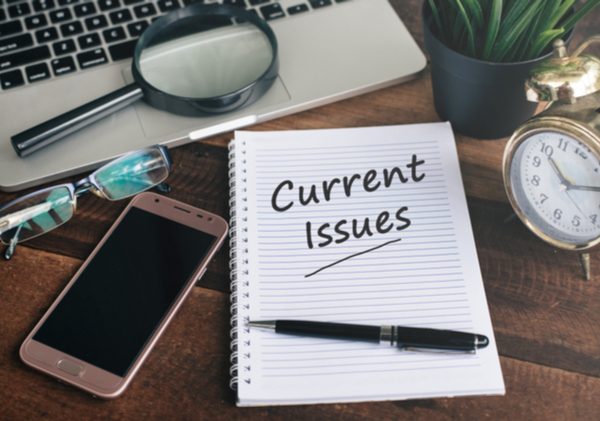
Coronavirus economic stimulus package: What’s in it for your business?
While there is no need to panic, all businesses should be considering the impacts of Coronavirus. For medium and small business, the Federal Government’s economic stimulus package brings some welcome news, and a handful of benefits.
By ATB Partners
In the past week, the Federal Government has ramped up its response to the global crisis surrounding Coronavirus.
Part of that response is a $17.6 billion economic stimulus package, designed to help protect Australia, on the back of what has been a fairly trying first three-quarters of the financial year.
We’ve had devastating bushfires and floods, now we face the threat of Coronavirus. The impact here is difficult to fully determine, as some parts of the world go into shutdown and put jurisdictions into quarantine because of its severity and epidemic proportions.

As a nation, we have been fortunate so far. And with the right precautions in place, in acting swiftly and appropriately to the potential threat of Coronavirus, we can continue to weather the storm.
But of course there remain some very real possibilities: people taking extended periods of time away from work, less overseas visitors spending their cash here, volatile exchange rates and investment markets … as well as the very real need for businesses in sectors like tourism, health, aged care and education to put in place new occupational health and safety protocols to protect both staff and customers.
All businesses should be planning ahead, and looking at strategic risk management.

What's the deal?
For medium and small business, the Federal Government’s economic stimulus package brings some welcome news, and a handful of benefits. We’ve outlined them here.
While the Bill is not expected to be introduced to Parliament until the end of the month, here’s what’s on the table right now.
Tax measures
- From Thursday 12 March 2020, the instant asset write-off threshold has been increased from $30,000 (for businesses with an aggregated turnover of less than $50 million) to $150,000 (for businesses with an aggregated turnover of less than $500 million) until 30 June 2020.
- A time-limited 15-month investment incentive (through to 30 June 2021) which will operate to accelerate certain depreciation deductions. This measure is proposed to only apply to new depreciating assets first used, or installed ready for use, by 30 June 2021.
- Tax-free payments of up to $25,000 for eligible small and medium businesses (i.e., those with a turnover of less than $50 million and employ staff) based on their PAYG withholding obligations.
- Administrative relief from the ATO for some tax obligations for people affected by the Coronavirus outbreak, on a case-by-case basis.
The ATO has also made a pledge to ensure that as much information (and it’s own trained staff, where possible) are more available in the coming weeks to assist with general public interaction and answering questions around the details of these new measures.
Other initiatives
- Wage subsidies to support the retention of apprentices and trainees. Employers with less than 20 full-time employees may be entitled to apply for Government funded wage subsidies amounting to 50% of an apprentice’s or trainee’s wage for up to nine months from 1 January. 2020 to 30 September 2020. The maximum subsidy for each apprentice/trainee is $21,000. Importantly, where an employer is not able to retain an apprentice, the subsidy will be available to a new employer that employs that apprentice. It is proposed that employers will be able to register for the subsidy from early-April 2020.
- Assistance to severely affected regions – The Government has also committed to set aside $1 billion to support regions and communities that have been disproportionately affected by the economic impacts of the Coronavirus, including those heavily reliant on industries such as tourism, agriculture and education.This will include:
The waiver of fees and charges for tourism businesses that operate in the Great Barrier Reef.
Marine Park and the waiver of entry fees for Commonwealth National Parks.The provision of additional assistance to help businesses identify alternative export markets or supply chains.
Further targeted measures to further promote domestic tourism.

Plan ahead
It’s a pretty comprehensive package, which will assist thousands of Australian businesses at a time when it’s needed – much is uncertain right now.
There is no need for panic, but all businesses should be considering their own response to Coronavirus. It needs to be on the radar.
We encourage you to look at what’s available, and to see how your business might best put these grants and tax breaks to good use.
If we can help with further advice, please contact us.
